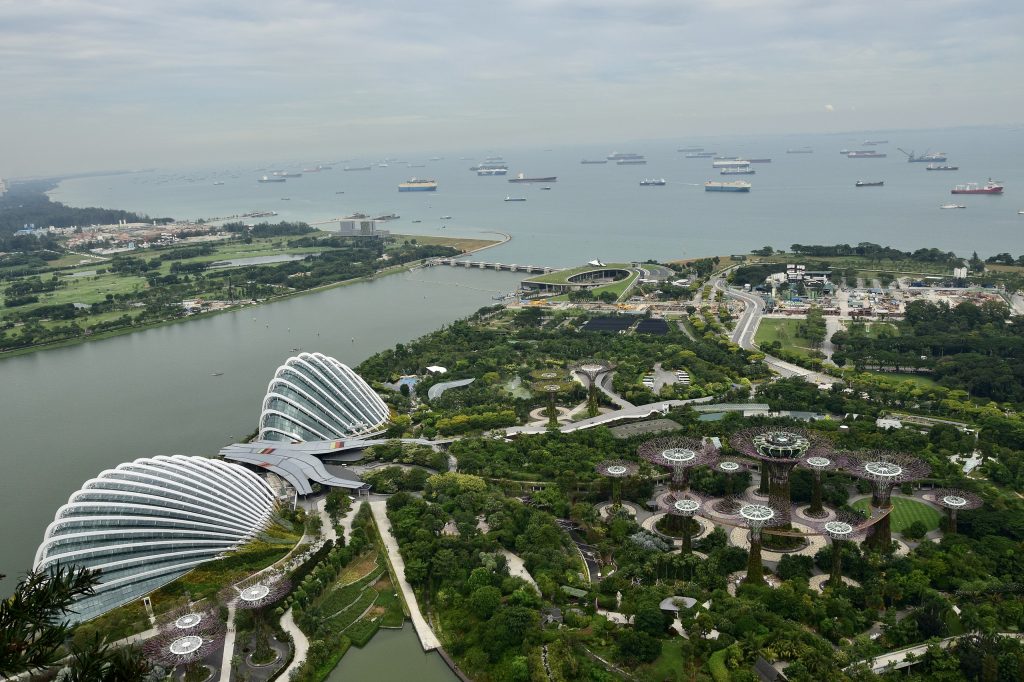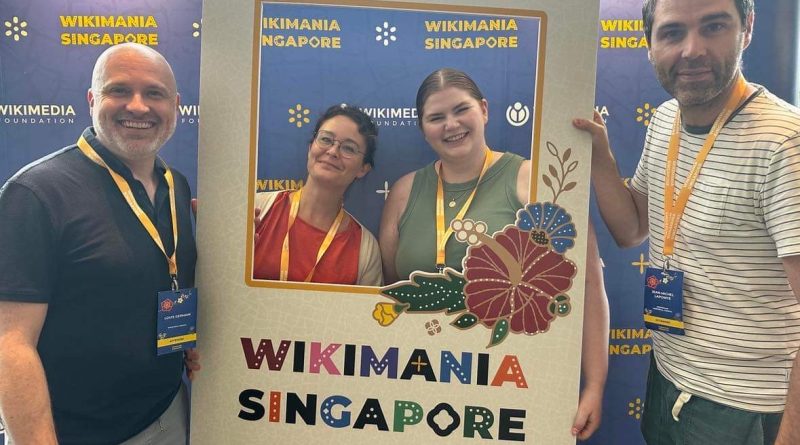Wikimania 2023, an opportunity to discover the collective intelligence that drives the Wikimedia movement
The host city of the 19th edition of Wikimania has it all. Singapore really is a unique place in the world. The city-state, which gained independence from Malaysia in 1965, has been a significant maritime hub since the 19th century, thanks to its highly favorable geographical location. It is also a multicultural and multilingual melting pot that serves as a model for many countries around the world.
“We Sail Tonight for Singapore”, sings Tom Waits, at the opening of his cult album Rain Dogs, and until recently, these few words summed up my knowledge of this place. In other words, I did not know much about this part of the world, so I was delighted to get to join the Canadian delegation at the Wikimania annual convention and also to learn more about Singapore.

Wikimania is the annual celebration of the Wikimedia movement. All the volunteers gather at the chosen destination to discuss, learn and explore during a few days full of conferences and workshops. However, I was struck as much as the first time by the great diversity of people involved in Wikimedia projects. This was my second experience at Wikimania, having been lucky enough to attend the 2017 edition in Montreal. But I was as impressed as the first time by the great diversity of people involved in Wikimedia projects.
Wandering around the convention centre where the event was being held, I had the pleasure of talking to people from all over the planet, who are committed to documenting their culture, in their language, to contribute to the greatest compilation of human knowledge to date.
Of course, we’ve talked a lot about Wikipedia, the movement’s flagship project. But Wikimania is also a golden opportunity to familiarize ourselves with other sister projects that have been around for several years, but are not as well known by the general public. These include Wikidata, the semantic knowledge base, Wikisource, the library of texts in the public domain, and Commons, the free media library. Other more recent projects, little known within the movement but destined to become very useful, were presented, including Wikifunctions, the collaborative database of computer functions inaugurated in 2020, and Wikilearn, the digital learning environment deployed in 2022.
Beyond understanding how each of these collaborative platforms works, what’s really stimulating at Wikimania is learning how wikimedians use these platforms with others in their own communities. A large proportion of the conferences are, in fact, feedback sessions, where we look back on our successes, warn against difficulties and share the tools and documents that enable the audience members to then get involved in similar initiatives.
In other words, every year Wikimania is a window on the collective intelligence that drives the Wikimedia movement. We come back refreshed, with our heads full of new ideas and projects to be developed, but also – and this is probably the most important thing – with new friends and connections from all over the world.
Jean-Michel Lapointe – recipient of a scholarship from Wikimedia Canada for Wikimania 2023

